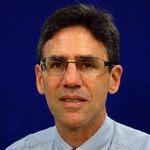CIA Director Brennan: Paris Attacks Should Bring U.S. and Russia Closer
Ahead of G-20 summit, White House signals willingness to work with Putin in Syria.
For years, governments in the Persian Gulf and the West alike, while disagreeing on much, have been in accord on one big thing—Syrian leader Bashar al-Assad is among the most heinous forces on the planet and has to go. But after the Islamic State attack on Paris, he improbably seems much less odious and most likely now has a lifeline to continued power.
Russia’s Vladimir Putin, too, has been one of the West’s leading villains, particular since sending his troops into Ukraine, annexing Crimea, and destabilizing the eastern part of his neighboring country. Suspicious of Putin and his motives, the West has ignored his entreaties for a joint Syrian strategy, one that from his own side has meant an air campaign designed to bolster Assad’s hold on power.
But in the wake of the November 13 Paris attack, Ukraine has abruptly vanished into the background, and the West, if not precisely embracing Putin himself, will embrace him as a partner in Syria.
President Barack Obama signaled this shift in a very public appearance with Putin on November 15, ahead of a G-20 summit in Turkey. CIA Director John Brennan today added to the picture of Putin coming in from the cold in a speech in Washington.
We’ve been exchanging info w/ Russia, I think it needs to be enhanced. -@CIA Dir Brennan https://t.co/xTBIIdH0fR pic.twitter.com/2awwp4W64d
— CSIS (@CSIS) November 16, 2015Paris was the last of three major strikes in which the Islamic State claimed responsibility—the first was the October 31 downing of a Russian airliner, killing 224 people; the second was a pair of Beirut suicide bombings on November 12 in which 43 died. As a whole, the Islamic State seemed to be sending a message that it can and will attack anywhere.
But the assault on the French capital has seemed particularly potent because of Paris’s stature as a primary Western city and, going back to the 18th century, a symbol of Western ideals alongside ancient Greece and the American revolution. At least initially, the attack has claimed the status of a great inflection point that, like 9/11, instantly shifts geopolitics.
It’s yet to be seen whether it assumes grander scale in global geostrategy and the popular imagination, like Pearl Harbor, or Hitler’s invasion of the Soviet Union. But look now for startlingly high-profile unity among formerly tense rivals and enemies.







